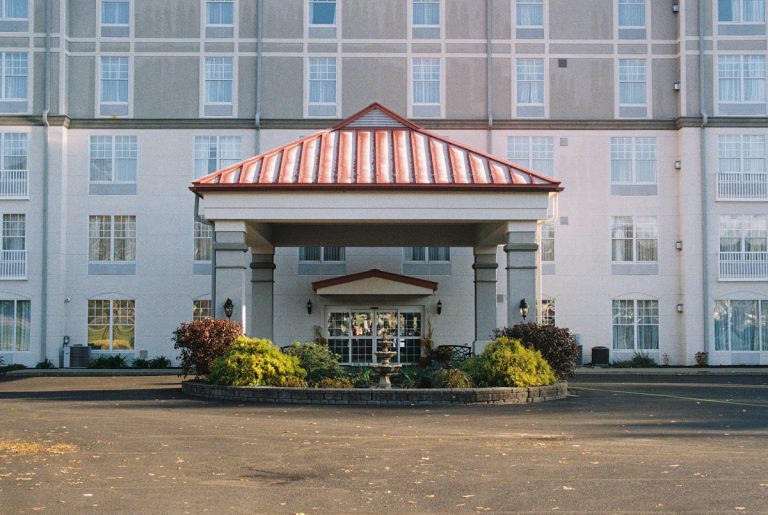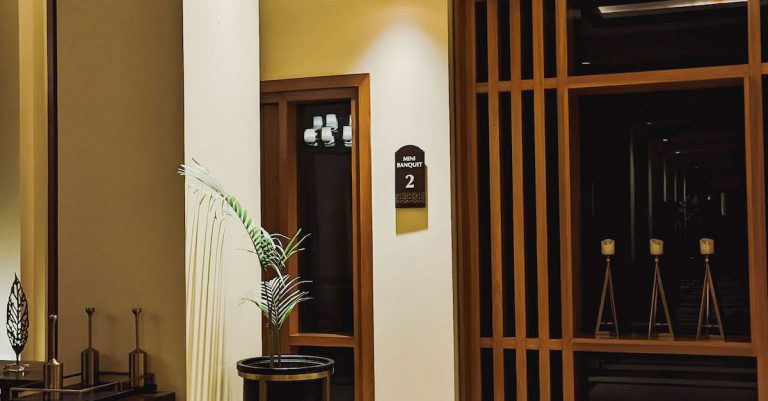With the rise of digital nomads and increased travel, understanding hotel pricing can save you money and unnecessary headaches. This article aims to shed light on one frequently asked question: Do you pay for hotels per day? If you’re short on time, here’s a quick answer to your question: Typically, hotels charge on a per-night basis, although there can be variations based on length of stay, location, and package inclusions. However, if you want to fully comprehend the intricacies of hotel pricing, including why some hotels may charge per day, and learn how to take advantage of various pricing strategies, continue reading. We’ll dive deep into topics like the pricing structure, factors influencing the cost, potential exceptions to the rule, and more.
Understanding the Basic Structure of Hotel Pricing
Have you ever wondered how hotels determine their prices? Is it based on the number of days you stay? Or do they charge you per night? Let’s uncover the secrets behind hotel pricing and understand the basic structure behind it.
The Standard: Per Night Charging
The most common pricing model used by hotels is the per night charging system. This means that the rate you see when booking a hotel room is the cost for one night’s stay. So, if you plan to stay for three nights, you would need to multiply the nightly rate by three to calculate the total cost.
This pricing model allows hotels to have flexibility in adjusting their rates based on demand. During peak seasons or special events, you might notice higher prices per night, while during off-peak times, you may find discounted rates.
Variations in Hotel Pricing
While per night charging is the standard, some hotels may offer variations in their pricing structure. For example, some hotels may have a minimum stay requirement, where you must book for a certain number of nights to get a specific rate. This is often seen during holidays or busy periods.
Additionally, hotels may also offer discounted rates for extended stays. If you plan to stay for a week or longer, you might be eligible for a lower nightly rate. This can be a great way to save money if you’re planning a long vacation or business trip.
Extra Charges: What’s Not Included in Your Nightly Rate?
When booking a hotel room, it’s important to be aware that there may be additional charges that are not included in your nightly rate. These charges can vary depending on the hotel and the services they offer. Some common extra charges you might encounter include:
- Resort fees: These fees cover access to amenities such as pools, fitness centers, and Wi-Fi.
- Parking fees: If you’re traveling with a car, the hotel may charge for parking.
- Room service or dining charges: If you order food or drinks to your room, there may be additional charges.
- Mini-bar charges: Consuming items from the mini-bar can result in extra charges.
It’s important to read the fine print and check with the hotel about any additional charges that may apply to your stay. This way, you can budget accordingly and avoid any surprises when it’s time to check out.
Now that you understand the basic structure of hotel pricing, you can make more informed decisions when booking your next stay. Remember to consider variations in pricing, any minimum stay requirements, and be aware of any extra charges that may apply. Happy travels!
Factors Influencing Hotel Costs
When it comes to hotel pricing, several factors come into play that determine the overall cost of your stay. Understanding these factors can help you make informed decisions and potentially save money on your next hotel booking. Let’s take a closer look at some of the main factors that influence hotel costs.
Location and Time of the Year
The location of a hotel and the time of year you plan to visit are two significant factors that can greatly affect the price you pay. Popular tourist destinations tend to have higher hotel rates due to increased demand. For example, a hotel in New York City or Paris is likely to be more expensive than a hotel in a smaller, less popular city. Additionally, prices tend to rise during peak travel seasons, such as summer holidays or major events. On the other hand, you may find more affordable rates during off-peak seasons when there is less demand.
Type of Room and Hotel Star Rating
The type of room you choose and the star rating of the hotel also play a role in determining the cost. Most hotels offer a variety of room options, ranging from standard rooms to suites. Naturally, suites and higher-end room types will come with a higher price tag. Similarly, hotels with higher star ratings, indicating a higher level of luxury and amenities, typically charge more for their rooms. It’s important to consider your budget and preferences when selecting the type of room and hotel star rating that best suits your needs.
Additional Services and Amenities
Hotels often offer additional services and amenities that can enhance your stay but may also come at an additional cost. These can include services like airport transfers, spa treatments, in-room dining, or access to fitness facilities. While these extras can add to the overall cost, they can also contribute to a more enjoyable and convenient experience. Consider whether these services are essential to your stay or if you can do without them to help manage your budget.
It’s worth mentioning that hotel prices can vary significantly between different booking platforms and websites. It’s always a good idea to compare prices across multiple websites to ensure you’re getting the best deal. Additionally, keep an eye out for any promotions or discounts that hotels may offer, especially during off-peak seasons.
So, the next time you’re planning a hotel stay, keep in mind the location, time of year, type of room, hotel star rating, and additional services and amenities that can influence the cost. By considering these factors and doing a bit of research, you’ll be better equipped to find the right hotel at the right price for your needs.
Exceptions to the Rule: When Do Hotels Charge Per Day?
While hotels typically charge guests per night, there are certain exceptions to this rule. Understanding these exceptions can help you navigate the world of hotel pricing and make informed decisions about your accommodation. Here are a few instances where hotels may charge per day:
Extended Stay Hotels
Extended stay hotels are designed for guests who plan to stay for an extended period, typically a week or longer. In these cases, hotels often offer discounted rates for guests who book a certain number of consecutive nights. Instead of charging per night, extended stay hotels may charge a flat rate per day for the duration of your stay. This pricing model can provide significant savings for travelers seeking longer-term accommodations.
Special Packages and Deals
Hotels frequently offer special packages and deals to attract guests and enhance their experience. These packages may include added amenities, such as spa treatments, dining credits, or tickets to local attractions. In some cases, hotels may charge a fixed rate per day for these packages, regardless of the number of nights you stay. Keep an eye out for these offers when booking your hotel to take advantage of the added value they provide.
Unique Circumstances: Natural Disasters, Events and More
During unique circumstances such as natural disasters, major events, or conferences, hotels may deviate from their standard pricing model. In high-demand situations, hotels may switch to a per-day pricing structure to maximize revenue. This can result in higher rates for shorter stays, as hotels seek to accommodate as many guests as possible. It’s important to be aware of these potential fluctuations in pricing during specific events or times of high demand.
For more information on hotel pricing and booking strategies, you can visit reputable travel websites like Booking.com or Expedia.com, which provide comprehensive information on hotel rates and options.
Strategies to Get the Best Deal
Booking Directly vs. Through Online Travel Agents
When it comes to booking hotels, you have two main options: booking directly with the hotel or using online travel agents (OTAs) like Expedia or Booking.com. Both options have their pros and cons. Booking directly with the hotel can sometimes offer perks like free breakfast or room upgrades, while OTAs often provide a wider range of choices and competitive prices. However, it’s important to note that some hotels may offer lower rates on their own websites to encourage direct bookings. So, it’s worth comparing prices on different platforms before making a decision. Additionally, some hotels have price-matching policies, so if you find a better deal on an OTA, they may be willing to match it if you book directly with them.
Utilizing Loyalty Programs and Credit Card Points
One way to get the best hotel deals is by taking advantage of loyalty programs and credit card points. Many hotel chains offer loyalty programs that allow you to earn points for each stay, which can later be redeemed for free nights or other benefits. Additionally, certain credit cards offer rewards or points that can be used towards hotel bookings. By leveraging these programs, you can save a significant amount of money on your hotel stays. It’s also worth noting that some credit cards offer exclusive deals or discounts when booking through their travel portals. So, be sure to explore all your options to maximize your savings.
Last-Minute Bookings: Risk or Reward?
Last-minute bookings can be a double-edged sword. On one hand, hotels often offer discounted rates for last-minute bookings to fill empty rooms. This can be a great opportunity to snag a deal if you’re flexible with your travel plans. On the other hand, availability may be limited, especially during peak travel seasons, and you might not have as many options to choose from. Additionally, waiting until the last minute can be risky, as prices can also increase if demand suddenly rises. Therefore, it’s important to weigh the potential rewards against the risks when considering a last-minute booking. Keeping an eye on hotel price trends and setting up price alerts can help you make an informed decision.
To find the best hotel deals, it’s important to consider various factors such as booking directly versus using OTAs, utilizing loyalty programs and credit card points, and the potential risks and rewards of last-minute bookings. Remember to compare prices, explore different options, and plan your bookings strategically to get the most value for your money. Happy travels!
Sources:
– Expedia
Common Misconceptions About Hotel Pricing
When it comes to hotel pricing, there are several common misconceptions that many people have. Let’s uncover the truth behind these misconceptions and shed some light on how hotels really charge for their services.
Hotels Always Charge Extra for Late Check-Out
Contrary to popular belief, not all hotels charge extra for late check-out. While some hotels do have a policy in place that requires an additional fee for late check-out, many others are more flexible and accommodate their guests’ needs without any extra charges. It’s always a good idea to check with the hotel beforehand to see if they offer complimentary late check-out or if there are any fees associated with it.
All Inclusive Resorts Are Always More Expensive
It is a common misconception that all-inclusive resorts are always more expensive than other types of accommodations. While it is true that all-inclusive resorts often come with a higher upfront cost, they can actually save you money in the long run. With all meals, drinks, and activities included in the price, you won’t have to worry about constantly opening your wallet during your stay. Plus, many all-inclusive resorts offer discounts and promotions that can make them more affordable than you might think.
Cheapest Rooms Are Always the Worst Rooms
Another misconception is that the cheapest rooms in a hotel are always the worst rooms. While it’s true that higher-priced rooms often come with more amenities and better views, that doesn’t mean that the cheapest rooms are necessarily bad. In fact, some budget-friendly hotel rooms can still be quite comfortable and offer a pleasant stay. It all depends on your preferences and priorities. If you’re mainly looking for a clean and comfortable place to rest, a cheaper room might be all you need.
It’s important to remember that hotel pricing can vary depending on various factors such as location, amenities, and demand. So, don’t always assume that the common misconceptions about hotel pricing are true. Each hotel has its own policies and offerings, so it’s always a good idea to do your research and compare prices before making a booking.
Conclusion
To conclude, hotel pricing can be a complex web of factors, inclusions, and exceptions. While the majority of hotels charge on a per-night basis, it’s important to be aware of the possible variations and the factors that can influence these costs. This information empowers you to navigate the hotel booking process with confidence, make informed decisions, and possibly even score a great deal on your next stay. So, the next time you find yourself asking ‘Do I pay for hotels per day?’ you’ll have the knowledge to answer with conviction and clarify for others who may have the same question. Happy travels!






